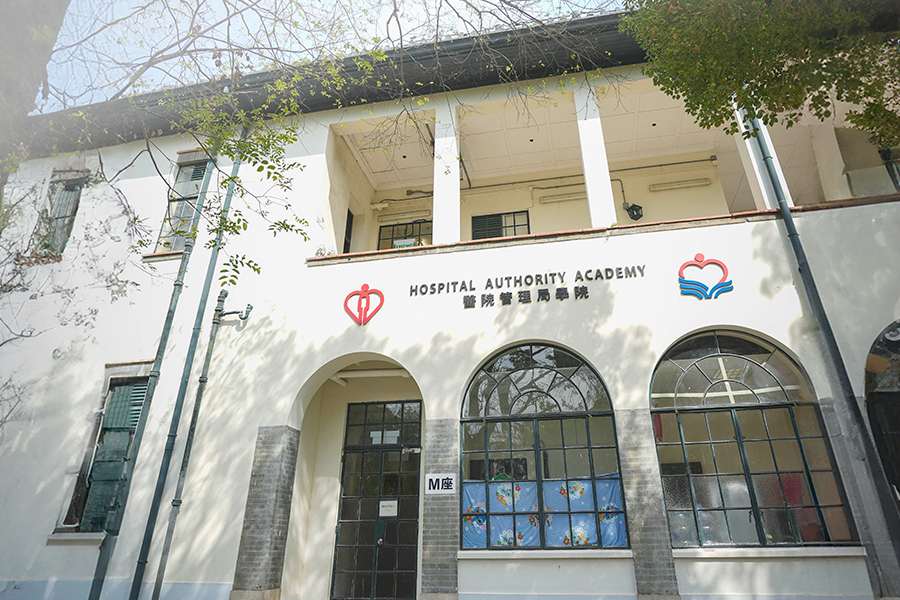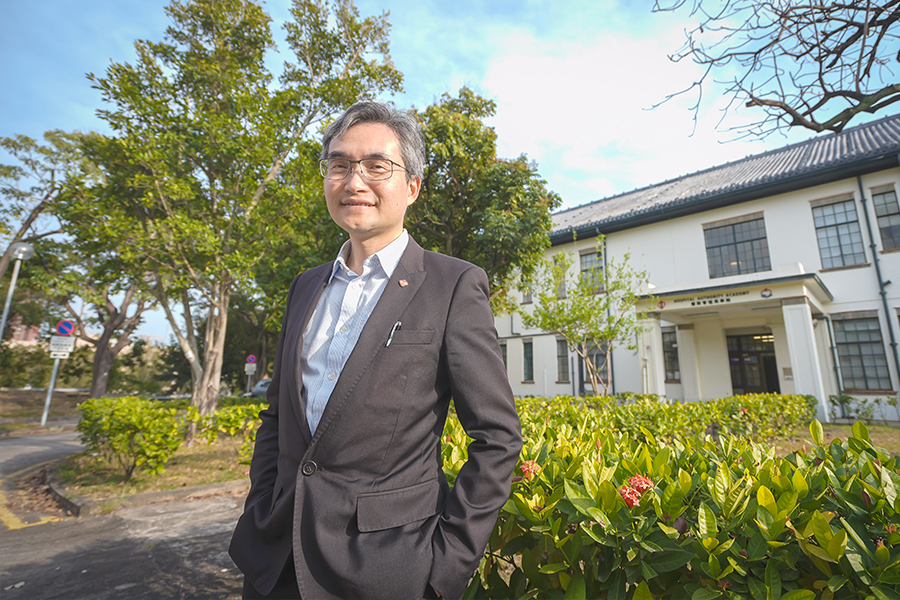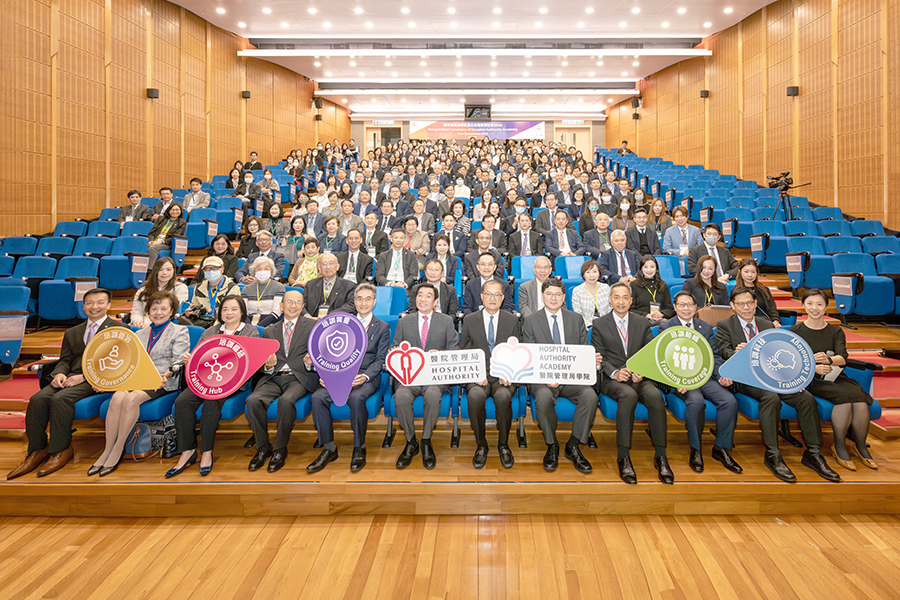HA Academy promotes self-directed learning on its intelligent platform
 The Hospital Authority (HA) Academy was established last year to support the future development and needs of healthcare services, and to fast-track the professional and career development of employees. The academy is currently liaising with stakeholders on training and development strategies that will introduce flexible learning models and create an intelligent platform for learners to engage in self-directed learning, according to Academy Head Dr David Sun. He adds that the objective is to enhance the quality of training for Hong Kong’s public healthcare sector and nurture healthcare professionals dedicated to serving patients and continuous learning.
The Hospital Authority (HA) Academy was established last year to support the future development and needs of healthcare services, and to fast-track the professional and career development of employees. The academy is currently liaising with stakeholders on training and development strategies that will introduce flexible learning models and create an intelligent platform for learners to engage in self-directed learning, according to Academy Head Dr David Sun. He adds that the objective is to enhance the quality of training for Hong Kong’s public healthcare sector and nurture healthcare professionals dedicated to serving patients and continuous learning.
 The HA Academy brings together five different institutions with their own independent training courses and management structure: The Institute of Advanced Allied Health Studies, the Institute of Advanced Nursing Studies, the Institute of Health IT, the Institute of Vocational Training, and the Hospital Authority Nursing Schools. The short-term goal of the academy is to integrate the resources of the existing institutions and streamline their administrative processes to achieve better synergy. “For instance, we have four nursing schools that all handle the same procedures, such as applying for practising certification,” Dr Sun explains. “After resources are integrated, these procedures can be completed collectively under the name of the academy.”
The HA Academy brings together five different institutions with their own independent training courses and management structure: The Institute of Advanced Allied Health Studies, the Institute of Advanced Nursing Studies, the Institute of Health IT, the Institute of Vocational Training, and the Hospital Authority Nursing Schools. The short-term goal of the academy is to integrate the resources of the existing institutions and streamline their administrative processes to achieve better synergy. “For instance, we have four nursing schools that all handle the same procedures, such as applying for practising certification,” Dr Sun explains. “After resources are integrated, these procedures can be completed collectively under the name of the academy.”
Qualifications framework to increase recognition
The challenge in setting up the academy is that the public hospital operations are complex and diverse compared with other institutions, “It’s not easy to find completely alike models anywhere in the world,” Dr Sun points out. “Therefore, we need to develop our own course directions based on our own characteristics.” One key direction is digital learning. The academy will work with the Information Technology Department to develop digital learning platforms that allow learners to study online at their own pace, fulfilling the criteria once they reach the required hours or certain standards.“E-learning can enhance the interest of learning and flexibility in selecting study hours allows for self-directed learning. Learners can study on their phones even while commuting to work and back,” Dr Sun says. “It also reduces the additional teaching time for tutors and minimises the impact on their clinical work, which is more in line with the needs of healthcare staff who work shifts. Physical classrooms however are complementary through more interactive discussions.”
The academy’s next step will be to strengthen cooperation with external institutions to link certain training courses with qualifications framework and increase recognition of the courses. “We hope to collaborate with tertiary institutions,” explains Dr Sun. “For example, in the future, we can explore whether learners’ clinical experiences can be counted towards the academic credits or qualification certifications.” As Hong Kong’s main public healthcare provider, HA has a duty to maintain a high level of medical services and cultivate more high-quality healthcare professionals, argues Dr Sun. He hopes to see the academy grow into an iconic corporate training institution. “Our ultimate goal is to establish a HA standard, and further enhance the medical standards in Hong Kong. As well as nurturing talent for the public healthcare sector in Hong Kong, we aim to contribute to the development of healthcare in the Mainland especially the Greater Bay Area and around the world.”
 Inauguration ceremony video
Inauguration ceremony video